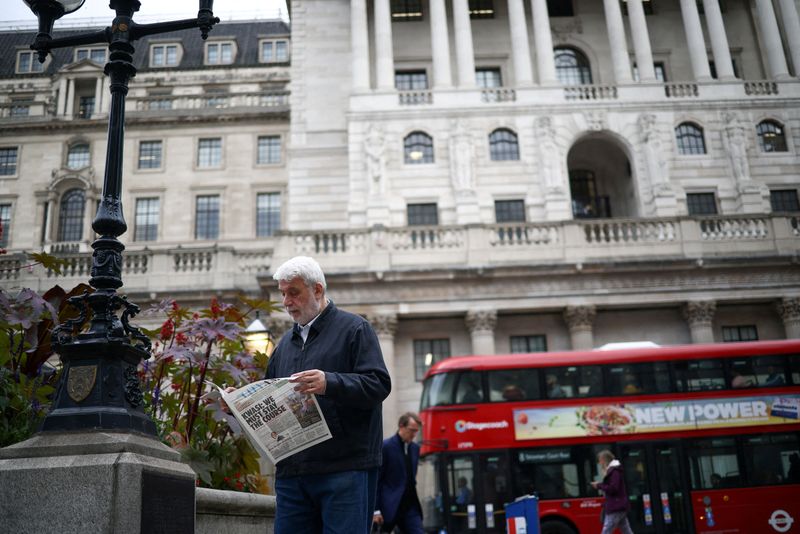By Geoffrey Smith
Investing.com -- The Bank of England secured a smooth start to the potentially tricky process of unwinding years of 'quantitative easing' on Tuesday, as the first of its planned sales of U.K. government bonds passed off without undue alarm.
The Bank said it sold 750 million pounds of Gilts, as planned, at auctions where bidding patterns suggested solid demand and realistic pricing. Bids for the bonds on sale totaled over £2.44 billion, covering the auctioned amount 3.26 times.
A 'bid-to-cover ratio' of over 3 is typically regarded as a satisfactory outcome by most governments' debt management offices.
The Bank is likely to breathe a small sigh of relief after what will be the first of regular operations to whittle down vast holdings of bonds accumulated over the last decade.
During that time, it has pumped a total of £838 billion into the financial system through bond purchases, keeping market interest rates lower than they would otherwise have been and finding novel ways to loosen financial conditions at a time of low growth, even when its key interest rates were close to zero.
The BoE is the first of the big advanced economy central banks to actively reduce the holdings of bonds acquired through QE. It had flagged its intention to do so in the summer but had been forced to delay the start of 'quantitative tightening' by a month after the ill-judged unfunded tax cuts of newly appointed Prime Minister Liz Truss triggered the most extreme bout of volatility in the Gilt market in 30 years.
The bond market's reaction was so violent that it forced the Bank not only to suspend its plans to sell bonds but even to resume buying them for a limited time to stave off what it called a "material risk" to the financial system. The debacle forced Truss's resignation and the appointment of Rishi Sunak as Prime Minister. Order in the market was restored as Sunak, with Chancellor of the Exchequer Jeremy Hunt, scrapped Truss's plans and signaled a return to a more balanced budgetary policy. The precise details of this are due to be laid out on November 17th.
The Bank plans another six such sales this month. In addition, it will allow other bonds in its portfolio to mature without replacing them, something that will likewise have the effect of gradually withdrawing liquidity from the financial system, and consequently pushing market interest rates higher.
The Gilt market absorbed the extra bonds without trouble on Tuesday, with yields (which move inversely to prices) falling after the operation. By 12:40 ET (16:40) GMT, the yield on the benchmark 2-Year Gilt was down 12 basis points at 3.17%.
